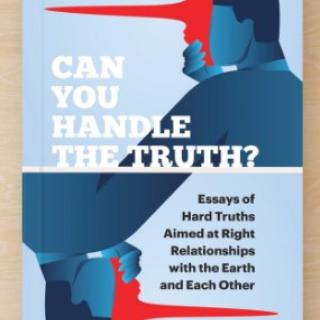Advertisement
If you ever doubt the importance of good fathering, see Amy.
The documentary is about the sad life of Amy Winehouse (1983-2011), a British singer-songwriter whose name was almost synonymous with “self-destructive genius.” By her own account, she blamed some of her worst tendencies on her father’s failure to be there for her—or her mother, to whom he was unfaithful—when Amy was growing up. Her parents separated when she was only 9.
Of course, good mothering can make up for a father’s absence, but Amy clearly didn’t get that, either. Late in the film, her mother reveals that she learned Amy was bulimic when the girl was 15. So how did Mom respond? Apparently, she didn’t.
Back to the father: As if to make up for his earlier absence, Mitch Winehouse did play a role in Amy’s adult life, but it’s debatable whether he played a good role. At one point, he argued against getting his alcohol- and drug-addicted daughter the rehab treatment she so obviously needed. Later, he seemed more interested in benefiting from her celebrity than in doing what was good for her health and well-being.
Director Asif Kapadia (2010’s Senna) tells Amy’s story by combining archival material—including home movies, talk-show appearances and concert footage—with contemporary interviews. Even those who weren’t fans of the artist while she was alive will find much of it fascinating.
From the beginning, Amy Winehouse had a voice all her own, gravitating toward jazz rather than the more mainstream pop, and penning lyrics that were both dark and personal. Sometimes jarringly personal: More than once, the documentary shows Amy singing words specifically referring to traumas we’ve just seen her going through.
The doc is fascinating, but it’s also depressing, especially for those with any feminist consciousness. Amy’s father may have been her first bad male influence, but he was hardly the worst. That distinction went to lover and eventual husband Blake Fielder-Civil, who shared the singer’s propensity for substance abuse and self-destructiveness.
Some of the film’s most painful moments show Amy eagerly copying Blake’s unhealthiest behavior, even scratching herself with broken glass for a photo shoot. “I’ll do anything you do,” Amy tells him, and it’s all too true.
Watching the film raises questions that are difficult to answer. Amy Winehouse comes across as an independent spirit—as can be seen in her refusal to change her image or material to appeal to larger audiences—yet she allowed herself to be manipulated by men who hardly had her best interests in mind.
To be sure, some men did have her best interests in mind, including longtime manager Nick Shymansky. But they seemed powerless to stop her from indulging in the kind of behavior that eventually hobbled her career and ruined her health.
At a little over two hours, Kapadia’s film takes its time (maybe a little too much time) scrolling through the slow-motion train wreck of Amy’s life. It does include a few highpoints, such as her triumph at the 2008 Grammy Awards. But even these are tinged with sadness, as we know what ultimately awaits her.
What killed Amy Winehouse? The film suggests several possibilities, including bad parenting, an addictive personality and a tendency to make herself subservient to the nearest untrustworthy male.
Likely it was a combination of things, all of which helped to make her the unique, provocative artist she was and to take her away from us much too soon.
Rating: 4 stars (out of 5)
Amy, rated R, opens Friday (July 10) at the Gateway Film Center, 1550 N. High St., Columbus. For show times and ticket prices, visit gatewayfilmcenter.org.



